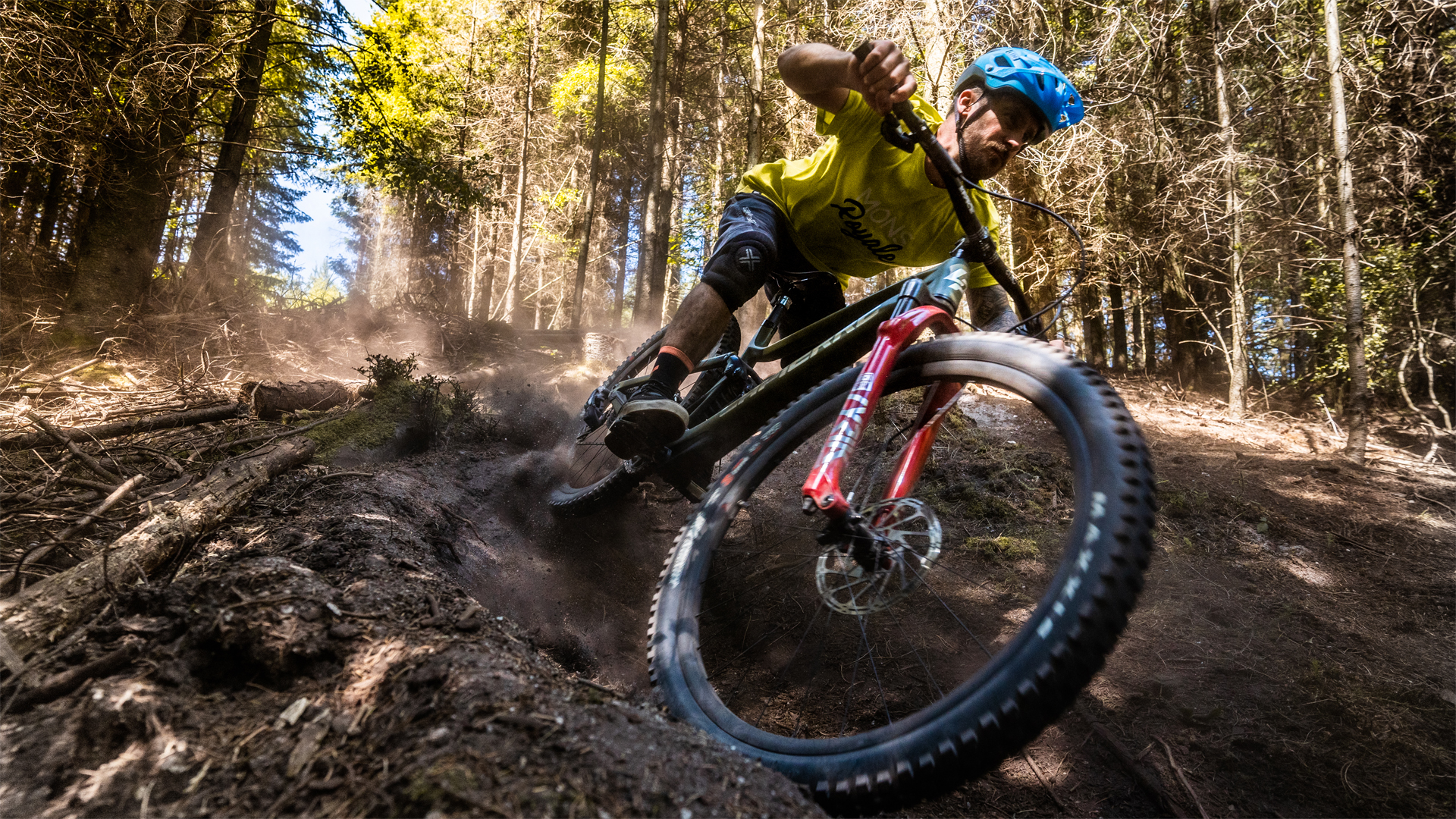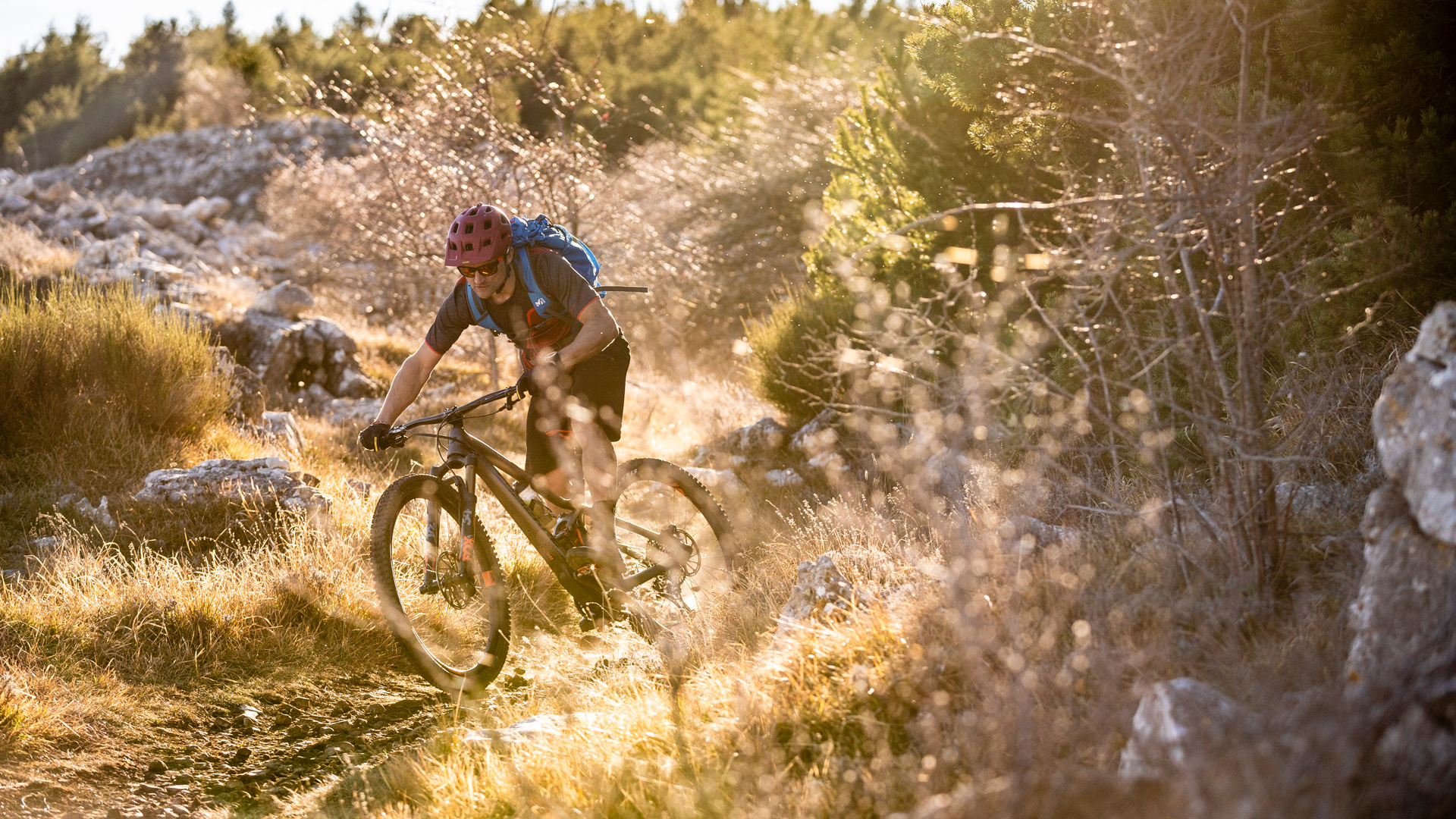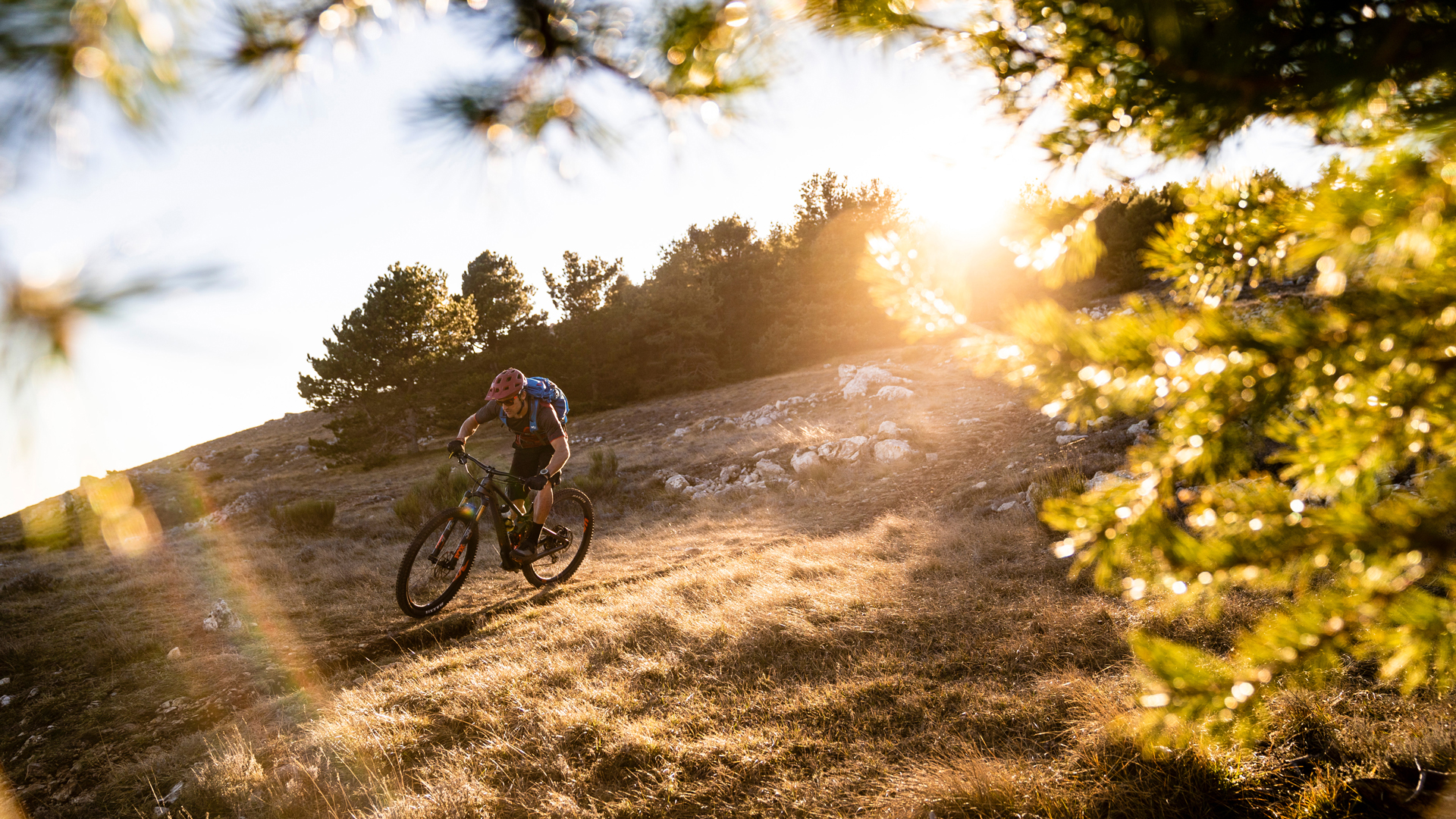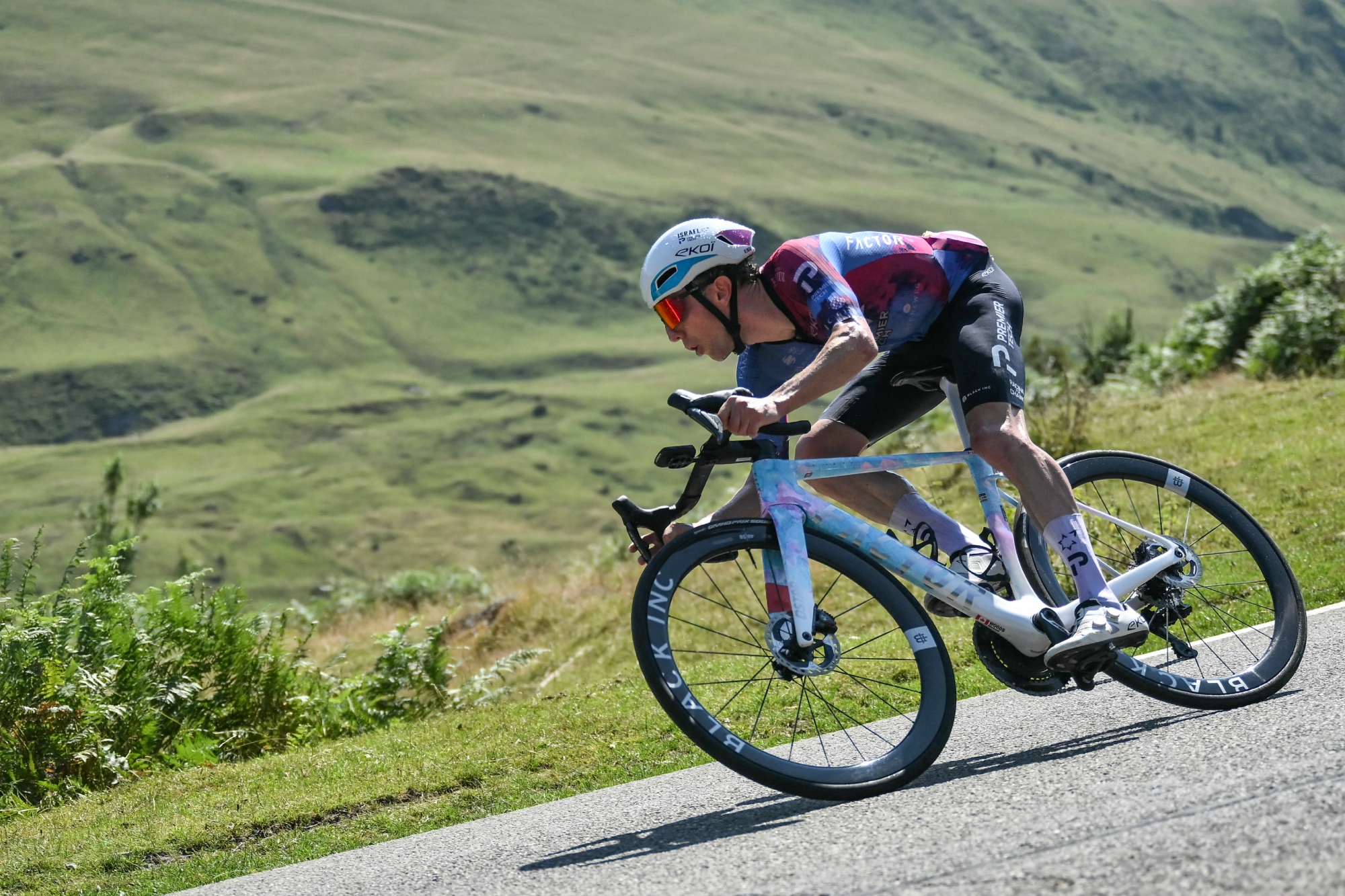Why your next bike should be a mountain bike
Top UK freerider and Lapierre ambassador Grant 'Chopper' Fielder explains how riding MTBs can make you a better all-round cyclist

Whether you’re watching the Tour de France or getting into the saddle for yourself, there’s an elegant simplicity to riding a bike on the road – it’s that perfect fusion of human and machine combining for maximum speed on the tarmac.
If you’ve dismissed road cycling’s trail-based cousin as something other people do, however, it may be time to think again. Taking up mountain biking can develop plenty of skills that you can apply to your road bike to make you a better all-round cyclist.
We’ve teamed up with top UK freerider and Lapierre ambassador Grant Fielder - who goes by the nicknames of Chopper or Chop - to get expert advice on how spending time riding MTBs can help you improve on the road.
Here are six ways hitting the trails can be good for you…
1. It’s great for your technique
Tarmac is consistent to ride on, but by heading off-road you open yourself up to exciting new challenges. Faced with unpredictable terrain and loose surfaces, for example, you need to think more about how you corner and how you brake – and that experience of making last-minute decisions on the trails can help if you encounter an unexpected pothole in the road.
“On the road you have a lot of time to decide when to brake,” says Chop. “With mountain biking you’ve got a tree right [ahead of you], you’ve got endless amounts of corners, so it’s non-stop split-second decisions, and you need to brake a lot. But the more you learn about braking, the better your riding becomes.”
2. It’s a different environment
Roads can be busy – especially at rush hour – but by taking your bike out into the countryside, you can escape the noise and get some much-needed time to yourself. “The whole reason why I’m into mountain biking in general is because no matter if I’ve had a good day or a bad day, if I go out on my bike,” explains Chop. “I’m going to have fun, and I'm going to clear my mind. You’ve got to worry about absolutely nothing apart from your bike handling skills.”

3. It can help you power up
Yes, a lot of mountain-biking routes can be found on the side of hills where gravity does lots of the hard work for you, but in order to get to the start, you’ll often need to pedal uphill. A lot of courses also involve climbs, but these can only be a good thing when you translate the experience to tarmac.
“There’s lots of trails where you will need to go uphill every now and again,” Chop says, “and you will need to get up there pretty quick. You have to get [your thighs] beefed up as well. The benefit of this is explosive power which you can then replicate on the road. Say, for example, you’re at the traffic lights and you want to get up to speed as quickly as possible, you can use that technique.”
4. It can improve your anticipation
Chop points out that when you’re riding on the road, you can take things for granted and “find yourself just being a robot”. On rapidly changing mountain bike courses, however, complacency is not an option. In fact, being ready for whatever’s heading your way can make you a much better cyclist – whether you’re anticipating obstacles or getting your bike in the right gear.
“With mountain biking, you need to take in every small detail,” he says. “I’m talking about the weather, I’m talking about the ground, I’m talking about the trees, your bike set-up. What line did I choose before? Is that still going to be available? It’s forever changing.”

5. There’s more variety
Okay, we admit it. When we’re out on the road, we often stick to the same old tried-and-tested routes, where expecting the expected comes as standard. But with mountain biking there are plenty of different disciplines to play around with – from slopestyle to free-riding, enduro to gravel and beyond – and many of them can be found here in the UK. “There’s lots of things that you can try,” says Chop. “There’s bike parks all around the world, especially in the UK. You can go with your mates, enjoy yourself and push yourself, because if don’t push yourself, you don’t learn those extra ‘I almost crashed’ skills. And that’s what I thrive on – living on the edge.”
6. It’ll help with your core strength
When you head out on the road, most of the work is being done by your legs. When you hit the trails, loads of other muscle groups come into play as you manoeuvre your bike over bumps, jumps and tree roots. “When I look at a road rider, they’re shaped like a Dorito,” Chop explains, “so huge legs, small torso. However, with mountain biking, it’s the opposite, so bigger shoulders and a stronger core. And the reason why mountain bikers have a stronger core is because of the amount of pulling and pushing and manhandling the bike they have to do. These skills you can use on the road, so having to hop up a curb in a split second is much easier to do.”
If we’ve convinced you that your next bike should be a mountain bike, head over to Lapierre Bikes for more information.
The latest race content, interviews, features, reviews and expert buying guides, direct to your inbox!
Founded in 1891, Cycling Weekly and its team of expert journalists brings cyclists in-depth reviews, extensive coverage of both professional and domestic racing, as well as fitness advice and 'brew a cuppa and put your feet up' features. Cycling Weekly serves its audience across a range of platforms, from good old-fashioned print to online journalism, and video.
-
 'It is better to fully recover' – Jonas Vingegaard delays season start after crash and illness
'It is better to fully recover' – Jonas Vingegaard delays season start after crash and illnessVisma-Lease a Bike rider pulls out of upcoming UAE Tour
-
 'My arms have never been sorer' – Mike Woods on his bucket list plans for 2026 and being a sporting 'imposter' again
'My arms have never been sorer' – Mike Woods on his bucket list plans for 2026 and being a sporting 'imposter' againCycling Weekly chatted to the "avid exerciser" about his big plans for this year